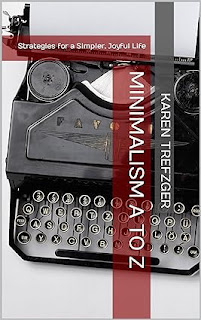The Problem with Saying Yes when We Should Say No
You forgot your only niece's birthday. You booked a haircut 30 minutes before you have to be at the dentist. You're running late to a client meeting, and you just realized there's no milk or Cheerios in your house.
You're battling busyness, and it's winning.
Now, there are tons of great time management apps and programs out there, but none of them will do you any good if you don't get to the root of your problem.
One simple word
We all have the same amount of time. Calm and productive Carol lives on the same planet as pressured and crazy Paul. Subtract the time you spend sleeping, getting dressed, commuting, and working, and you might be left with 5 or 6 hours every day. Exercise, cook dinner, do a home chore or two, and spend way too much time on your phone, and suddenly you have much less.
So we just have to become more hard-working and laser-focused, right? Schedule everything (including relationships) down to the minute and put our noses to the grindstone, is that it?
That sounds like a completely joyless and stress-filled existence, and isn't what we're seeking from a simpler, minimalist lifestyle.
What we need is a new mindset about time. Downloading and learning a new app or setting up a bullet journal are probably going to make you feel even more overwhelmed. None of those tools will help you get everything done.
What we need is one simple word: NO.
The trade-off
Saying no isn't easy.
- We don't want to sound rude.
- We don't want to miss out.
- We don't want to let down our boss, spouse, kids, friends, the PTA, that good cause...
But every time we say yes, we're saying no to something else.
- Saying yes to working late means saying no to family time.
- Saying yes to dinner with friends might mean saying no to time at the gym.
- Say yes to helping your brother with a home project, and you might be saying no to personal time.
These are either/or choices. We can never just add something to our schedules, because we can't add extra hours to our days. (Well, we can. We can lose sleep. We can let the house turn into a sty. We can forget making any intimate relationships work.)
If you ever want to control your schedule instead of letting it control you, you need to start viewing your time as a precious, non-renewable resource. Instead of thinking about everything you could possibly say yes to, you need to recognize what you're choosing not to do instead. Is it a trade-off you want to make?
The necessary and the optional
Open your journal, take out a piece of paper, or open the note-taking app on your phone. List every task or commitment you currently have. Don't forget responsibilities like grocery shopping, laundry, paying bills, picking the kids up from school, and cleaning up the kitchen after dinner.
Now put a check mark by every activity that's necessary. Making sure you have clean underwear is probably necessary; scrolling TikTok probably isn't. Going to work might be necessary; volunteering to coach Little League might not be. Don't worry – you need to see what you have to do before you can decide what you want to do.
Of those necessary tasks, ask "Am I the only person who can accomplish this?" Maybe your spouse or an older child should take a turn cleaning toilets or washing dishes. Maybe a co-worker should be handling a certain type of report instead of leaving it to you. You are important, but you don't need to prove that by doing all of the work.
Of the activities that are optional, what can you eliminate? Remember, whatever you say yes to requires a trade-off. When you say yes, what do you have to decline?
Some of the things you decide to eliminate might be good things, like helping in your child's classroom or serving on that church committee. But are they the best things for you in your current situation and time of life?
Steve Jobs has said,
People think focus means saying yes to the thing you've got to focus on. But that's not what it means at all. It means saying no to the hundred other good ideas that there are. You have to pick carefully.
More isn't better.
Just as with what we own, we assume that doing more is better. But more is never better than what's best. Instead of trying to do it all, all at once, choose your focus. Committing fully to a limited number of goals lets you give your best attention and energy to those few things.
Our brains love to single-focus. When we try to multi-task, it's just our brains switching frantically from one task to another. We continue to lose focus and have to waste time and energy to regain it. Every task takes longer, and nothing is done as well as if we did one thing at a time.
The uber-successful Warren Buffett has a concept called the 5/25 Rule. He suggests that you write down 25 professional and/or personal priorities. Next, carefully circle the 5 most important items. The 5 items become your A-list to focus on, but the other 20 are not just a B-list to fit in as you have time. According to Buffett:
Everything you didn't circle just became your Avoid-At-All-Costs list.
If you're seriously interested in achieving or giving your best to the 5 priorities, you can't let the other 20 distract you. You must give them zero attention. Once you accomplish the 5 important items, you can make another list of 25 (incorporating the first B-list, if you like), and again choose your top 5.
Essentially, you're acknowledging the fact that you're finite, that your energy and talents are finite, and you're finding a way to make the most of them. Saying no to the many so you can sanely and happily accomplish the few is a truly minimalist mindset.
Maybe you can, but you don't have to.
What gives you fulfillment and contentment? Is it hours spent on social media, or time spent with a loved one? Is it binge-watching TV, or working in your garden? Is it feeding your family healthy foods, putting in time on a passion project, cuddling with a good book and your pet, or something else?
If your job isn't making you happy, but you need it for now, figure out which tasks feel most meaningful and lean into those. What can you learn that might lead to a more satisfying position?
Opportunities and activities can be fun. Some doors are meant to be run through, but others will only keep you from doing what matters to you, and ultimately lead to burnout.
Or as my mom used to say:
Just because you can do something doesn't mean you must.
Set those boundaries, and don't say yes when you really should say no.
Related article: Find More Life Satisfaction with the Freedom of No
Available now: Volume 3 in my new Minimalist Basics series, Minimalism A to Z: Strategies for a Simpler, Joyful Life.* If you happen to have my original Minimalism A to Z (the first book I ever published), you should know that this book is not the same. I reused perhaps 25% of that first book, but it's all been rewritten and expanded. Most of the content is different. And this work is the centerpiece of the "Minimalist Basics" series.
Others are motivated by fear. We're forever adding multiples, because "you never know." We keep everything that comes our way, just in case. We always feel a sense of lack.
Both groups add tons of clutter. Both waste money, time, and energy. Neither is satisfied or at peace.
Minimalism seeks the just-right point of enough. And Minimalism A to Z contains practical strategies and thoughtful questions to help you get there. Much more than tidying up, minimalism helps you find the life you want... with less to distract you from it.
* This blog is reader-supported. If you buy through my links, I may earn a small commission.








Comments
Post a Comment